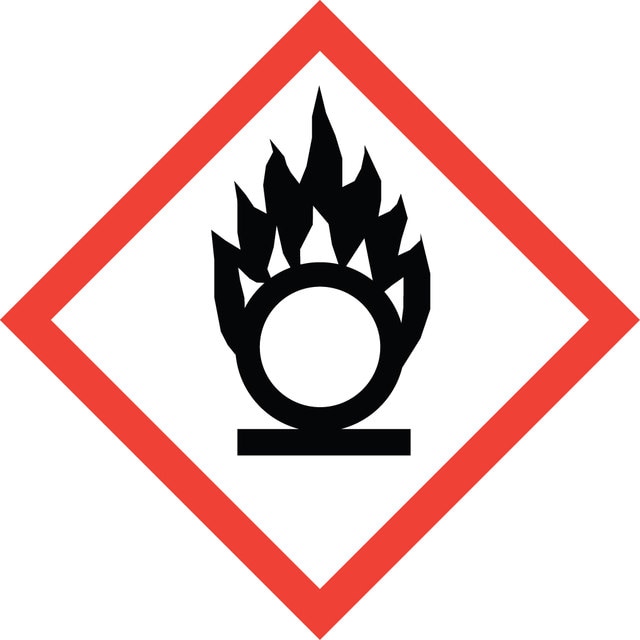225711
Nitric acid
70%, purified by redistillation, ≥99.999% trace metals basis
Synonym(s):
Aqua fortis, Azotic acid, Hydrogen nitrate
About This Item
Recommended Products
vapor density
1 (vs air)
Quality Level
vapor pressure
8 mmHg ( 20 °C)
assay
≥99.999% trace metals basis
70%
form
liquid
purified by
redistillation
color
colorless
pH
<1.0
bp
120.5 °C (lit.)
density
1.413 g/mL at 20 °C (lit.)
SMILES string
O[N+]([O-])=O
InChI
1S/HNO3/c2-1(3)4/h(H,2,3,4)
InChI key
GRYLNZFGIOXLOG-UHFFFAOYSA-N
Looking for similar products? Visit Product Comparison Guide
Related Categories
General description
Application
- The nitration of aromatic compounds, aromatic heterocycles, alkenes, active methylene carbons, etc.
- Selective oxidation of organosulfur compounds to corresponding sulfoxides using a solid acid catalyst.
- The oxidation of alcohols, aldehydes, esters, and heteroatoms.
- The aromatization and dehydrogenation reactions.
signalword
Danger
Hazard Classifications
Acute Tox. 3 Inhalation - Eye Dam. 1 - Met. Corr. 1 - Ox. Liq. 3 - Skin Corr. 1A
supp_hazards
Storage Class
5.1B - Oxidizing hazardous materials
wgk_germany
WGK 1
Certificates of Analysis (COA)
Search for Certificates of Analysis (COA) by entering the products Lot/Batch Number. Lot and Batch Numbers can be found on a product’s label following the words ‘Lot’ or ‘Batch’.
Already Own This Product?
Find documentation for the products that you have recently purchased in the Document Library.
Customers Also Viewed
Our team of scientists has experience in all areas of research including Life Science, Material Science, Chemical Synthesis, Chromatography, Analytical and many others.
Contact Technical Service




